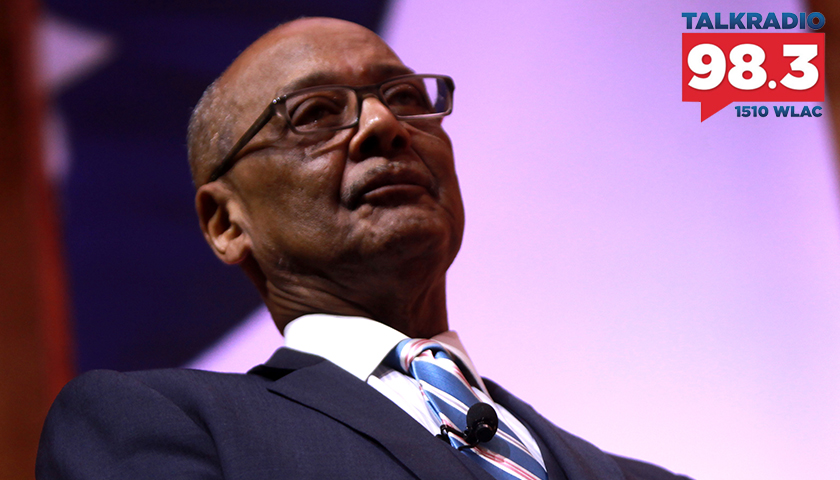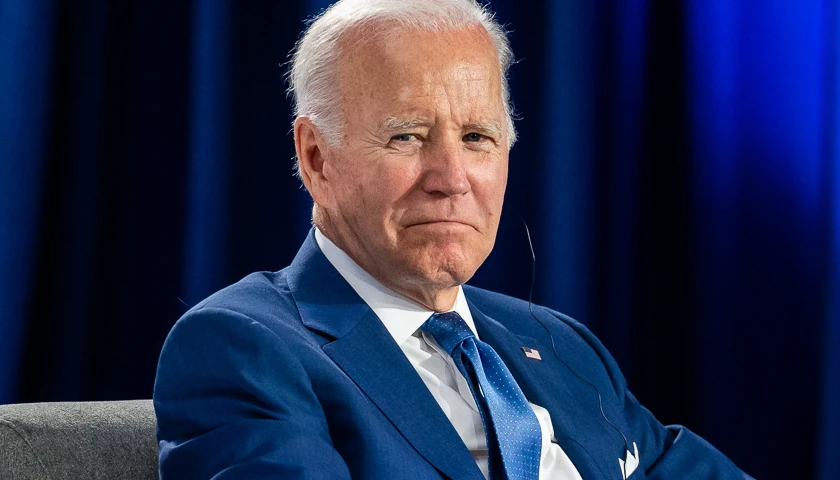Live from Music Row Monday morning on The Tennessee Star Report with Michael Patrick Leahy – broadcast on Nashville’s Talk Radio 98.3 and 1510 WLAC weekdays from 5:00 a.m. to 8:00 a.m. – host Leahy welcomed Bob Woodson founder of The Woodson Center and 1776 Unites to the newsmakers line to discuss his new book, Red, White, and Black, and highlight a few of the chapters and their context.
Leahy: We are welcoming to our microphone right now our good friend Bob Woodson, civil rights pioneer and the editor and contributor to a great new book, Red, White and Black: Rescuing American History from Revisionist and Race Hustlers. Welcome, Bob.
Woodson: I’m pleased to be here.
Leahy: Now I’ll tell you what. Talk about a family of intellectual thinkers. I’m delighted to find out about this book. It is published by Emancipation Press, a new imprint of Post Hill Press. Post Hill Press is based in Nashville and New York. And I’m guessing your editor there was the great Adam Bello.
Woodson: Adam Bello was one of them. Yes. David Bernstein, I work with him and Adam Bello. He and I go way back because when he was with the basic books, and then he published my first book. One of my first books was Triumphs of Joseph. He worked with me on that. Adam is a good friend.
Leahy: Adam is also a very good friend of mine. He published when he was at Harper Collins. He had the Broadside Books imprint. My first published book that wasn’t self-published, called Covenant of Liberty, about the Tea Party movement back in 2012.
And also the first book from Emancipation Press was by my good friend Bishop Aubrey Shines, Questions About Race that was published back in October. I have read the outline of this book.
You have a who’s who of great thinkers with great essays, including our own original all-star panelist, Carol Swain, who’s written a couple of essays here as well.
Woodson: Yeah. Carol is one of our stars. She did a great job on Fox last night, and as she does, she’s almost a regular there. So we are really proud of the group, an outstanding group that we brought together not only scholars but also the community activists because we really believe that one of the ways that we can help recruit people to re-embrace the principles of the founders is when we can demonstrate that following yet as the foundation really improves the quality of your life.
Self-determination, perseverance, you know, achieving against the odds. America is a country of second chances, redemption, and transformation. And so we try to celebrate the values of our founders by illustrating them in this book.
Leahy: John McWhorter has a great chapter. Slavery does not define the black American experience. Tell us about that chapter.
Woodson: What he’s really saying is that the radical left would have you believe that American Blacks are defined by oppression and slavery. That is not the total story. So what we do in this book and in this essay is that we counter this false narrative that somehow Black American’s history is defined strictly and limited to oppression.
Here, we celebrate the fact that when whites are at their worst, Blacks were at their best. When we were denied access to banks, we established our own. When we were denied access to hotels, we built our own.
We had our own education system. 5,000 schools were built by Booker T. Washington and the CEO of Sears. And so Julius Rosenwald. So we really provide evidence to refute the notion that Blacks are defined by oppression and slavery. So John McWhorter’s chapter supports that whole thesis.
Leahy: What I find interesting about the book is this is not all the writers are not Conservatives. For instance, Clarence Page, a well-known liberal reporter, and columnist has a chapter.
Children achieve the expectations we teach, turning a path to the more perfect Union begins with our guidance. Tell us about Clarence Page and how he came to be included as one of the authors you selected in this book client.
Woodson: Clarence Page has always been a long-time friend of mine. We never voted the same way, but he shared a passion for the virtues and principles of this nation and has always been projected in his writings.
And so Clarence was born in Middleton, Ohio, the same place that J.D. Vance. And they were trying to desegregate poverty as we are trying to de racialize race. Clarence did an important seminar interview with J.D. Vance and me in Cincinnati right up the road from Middleton to emphasize that the biggest barrier for people who are disadvantaged in America is not race.
You cannot generalize about race, but it is a lack of opportunity to progress. So Clarence and J.D. did this talk about the common ground between low-income and working-class white and lower-income and working-class Blacks that they have more in common than they do their racial differences.
And so Clarence has been a leader and standing up for that principle, that America is a country of redemption and transformation and a country of second chances.
Leahy: Charles Love has a great chapter. Critical Race Theory’s Destructive Impact on America. I see this all the time. Tell us about what Charles argues in that chapter.
Woodson: Well, critical race theory, we used to call that prejudice. We used to call it stereotyping. It’s just a fancy name for stereotyping. If stereotyping was bad and evil when it was applied to Blacks is bad and evil when applied to whites or anybody.
Nobody should be defined by the color of their skin. That tells you nothing. And yet that’s what critical race theory tries to make a case that whites are engaged in racism and therefore are engaged in white suppression of Blacks.
And so we really rip apart this whole notion and we go back to the King doctrine that we should be judged by the content of our character and not to color our skin. But this poisonous doctrine is bad for everybody.
It exempts Blacks from any personal responsibility. And nothing is more lethal when you have some doctrine that says to people there exempt from any personal responsibility because of their color.
And therefore the destiny of Black America is determined by what white America will concede. And that’s really sowing the seeds of self-contempt to say to people that somehow your destiny is determined by people who don’t like you. That’s poisonous to this nation.
It’s poisonous. These essays serve as given the foundation to attack that. We have developed so far, the 10 lessons that our curriculum has been made available free online. We’ve had 11,000 downloads in just a period of two weeks.
Leahy: Bob Woodson, that sounds like a great effort. And we keep us posted on how that goes. A Civil Rights icon. Great thinker. Great intellectual editor and contributor to Red, White, and Black, Rescuing American History from Revisionists and Race Hustlers. Bob, thanks so much for joining us. Come back again if you would please.
Woodson: Thank you for having me.
Listen to the full second hour here:
– – –
Tune in weekdays from 5:00 – 8:00 a.m. to the Tennessee Star Report with Michael Patrick Leahy on Talk Radio 98.3 FM WLAC 1510. Listen online at iHeart Radio.
Photo “Robert Woodson” by Gage Skidmore CC By-SA 3.0.






I often hear Mr. Woodson on Fox News. He often makes no more sense that Joe Biden. I am not saying that he is a bad person. I am simply stating that he is obviously past his prime.